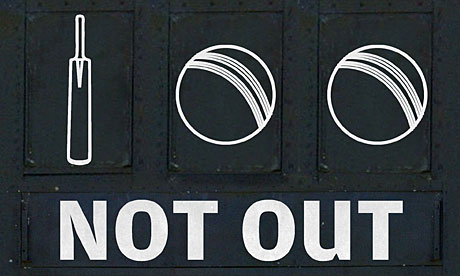
Today is the centenary of the birth of Vivian Jenkins, an authentic sporting figure of grandeur. Viv was British rugby's pre-eminent full-back through the 1930s, last line and top dog for Wales and the Lions, an Oxford double blue, a Glamorgan cricketer and, conspicuously, the first full-back ever to score a try in a Five Nations match – against Ireland in 1934.
Viv then became a reforming sportswriter, his unmissable weekly column establishing the Sunday Times as rugby union's pre-eminent Sabbath pulpit. He was the only national newspaperman (along with provincial compatriot JBG Thomas of the Western Mail) to cover the full Lions tours of 1950 and 1955, was for more than 30 years the only begetter of the invaluable Rothmans Rugby Annual. He was also the co-founder, half a century ago, of Rugby World, which remains the game's glossiest monthly bestseller, and for which he commissioned this greenhorn scribbler's first proud pieces all those years ago.
So I can vouch for his genial generosity, wise humanity, and the glint in his eye with which he would, with reasonable content, have surveyed Wales's sometimes fetching performance in last month's World Cup, although the old hoofer would have snorted at their pathetic goal-kicking.
There's always a centenary to be marked. Last month, two favourite cricketers would have clocked up their three figures – VM Merchant, the 1946 India captain, the first tour to capture my boyhood imagination, and the tall, apple-cheeked Reg Perks, whose inswingers took nine wickets for Worcestershire at my first ever Cheltenham Festival that same year.
A quarter of a century later VM Merchant, true great with a first-class average (still) only second to Bradman's, actually watched me bat – for the out-of-our depth Guardian press XI at the fabled Gymkhana ground in then Bombay. I was out for four, bowled neck-and-crop second ball having, in a blind panic, flukily inside-edged my first delivery to the fine-leg boundary. "Oh, bad luck, my dear sir," enthused Mr Merchant on my return to the pav, "you played such an exquisite leg-glance to that first ball, I thought I was in for a real treat."
I accepted the ludicrously misplaced praise with all the suave nonchalance of a fellow rajah of the crease.
Along with Hampshire's Leo Harrison and Glamorgan's JC Clay, Perks was the best county-set buddy of John Arlott, longtime monarch of these pages. In his mellow cups John, like most of us, was always a better player in his rosily misty memory than he had actually been, and when I told him I was moving to Hereford he said to make sure to pay respects to the village pitch at Much Marcle: "It's where I hit my biggest ever sixer – not only out of the field but over the road and into a distant barn."
"Really, JA," I said with a challenging scepticism, "such a gigantic six is hard to believe." The sage was affronted by such cheek: "If Reg [Perks] was alive he'd tell you – it was 1939 and I'd borrowed his bat and such was the power of my blow that it bust the blade in half."
So well ordered is cricket history that it is almost permanently celebrating centenaries. Offhand this year, for instance, Northants nod ton-up thanksgiving for nice Norman Oldfield; Essex supporters hosanna remembrance of Ken Farnes, England's fastest between Larwood and Tyson; Notts and Sussex respectively salute their two classy "juniors", refined thoroughbred Joe Hardstaff and busy enthusiast George Cox; just as Derbyshire do their bald, bounding stalwart George Pope.
Forty years ago, on an ITV afternoon chat show, together with the incorrigible and thirsty, long-luncher Bill Grundy, I interviewed live the footballer Pelé, in London to begin a PR tour of Europe. He said how honoured he was to have arranged an audience with the Pope – at which Bill at once leapt in to ask, to the nation's bewilderment: "I take it, señor Pelé, you mean a meeting with the raw-boned and rangy former Derbyshire medium-pacer George Pope?"
A renowned English cultural centenary in 2011 is that of playwright Terence Rattigan, whose three-figure score coincides happily with an acclaimed resurgence of his notable stage work. He was cricket mad and his obit in the 1978 Wisden didn't even mention the theatre, just a crushing tragi-comic, three-liner weepie. "Died Bermuda, aged 66; like his father and uncle, was in the Harrow XI, winning his place in 1929 as an opening bat, but next year though he played in the XI, was not in the side at Lord's. He was an elegant stroke-player, but unsound."
Did any of his plays receive such a dismissively ambivalent notice?

